Remembering Humayun Butt Of Brighton Beach
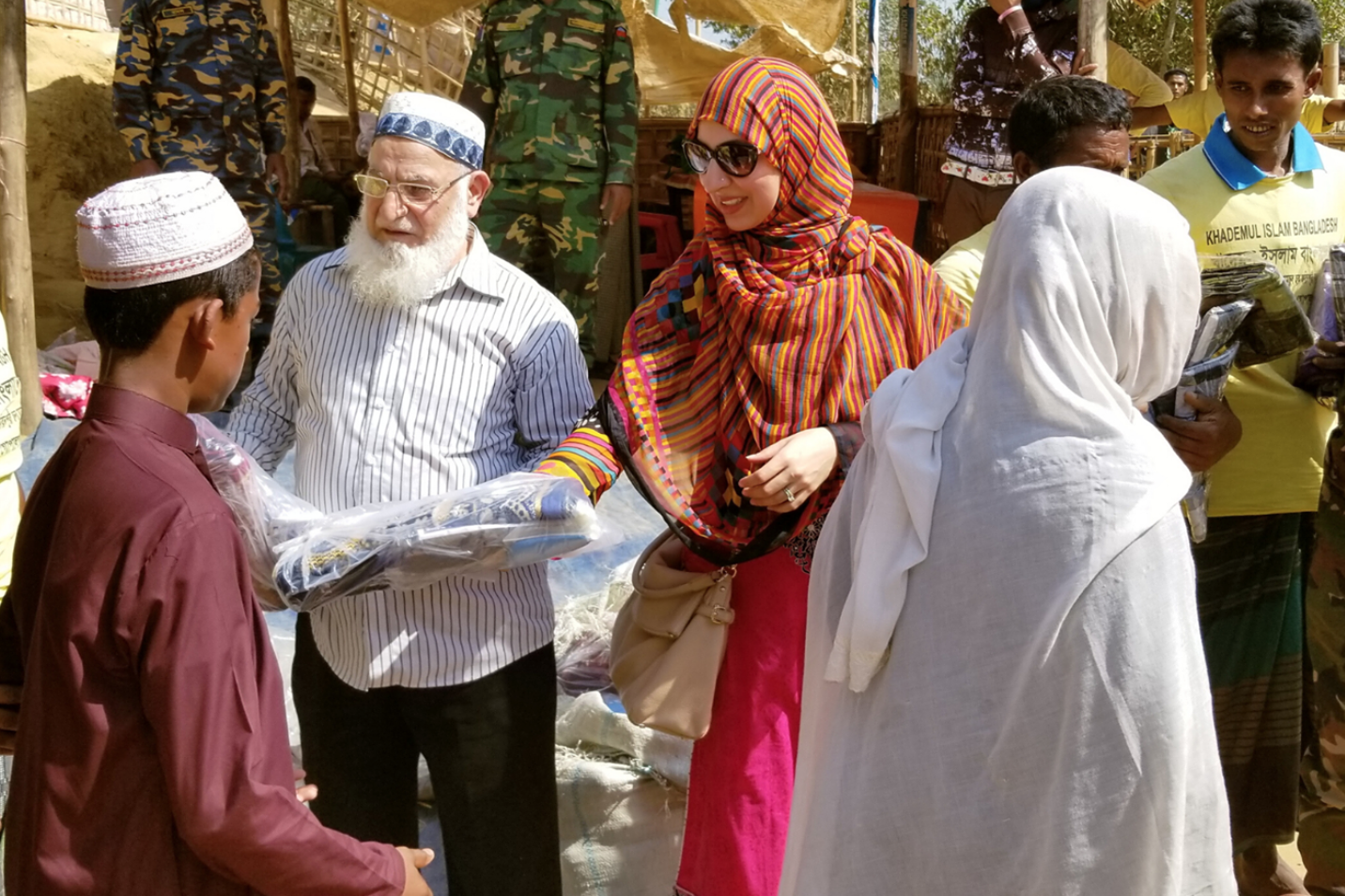
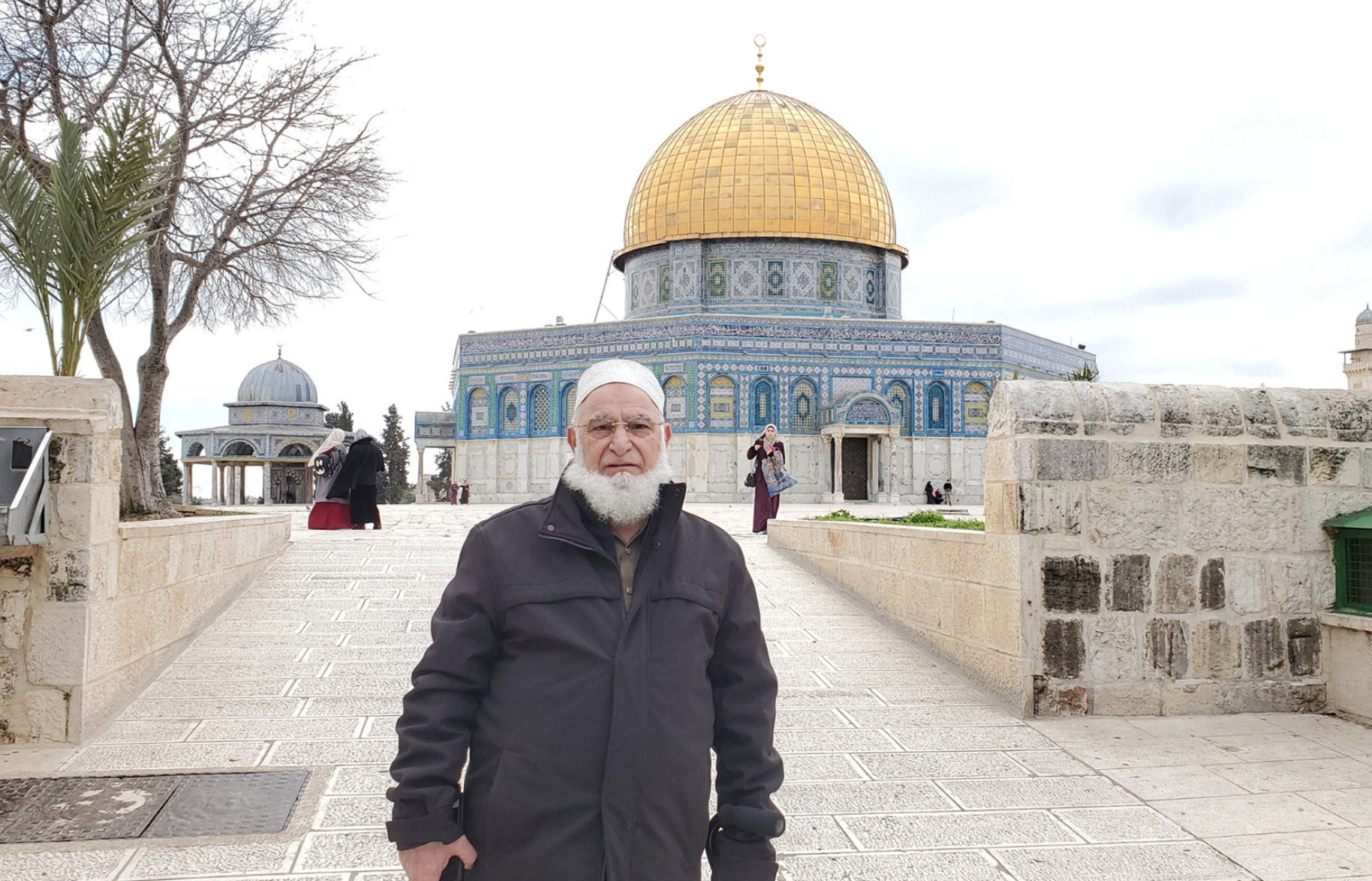
BRIGHTON BEACH – Humayun Butt was a dad to four children. He was a grandpa to eight. And he was a father figure to many. He loved to laugh. He would make his wife chai for breakfast every morning. At the end of March, he got really sick, was soon diagnosed with the coronavirus, put on the ventilator for a week, and on April 9, he passed away. He was 72.
Samia Butt, 31, is Butt’s youngest daughter and grew up in Brooklyn, moving to Queens with her husband Syed Anan when they got married. Her father stayed in Brooklyn until the day he died. She told us about her father.
“Everyone always said he had so much noor on his face. He started growing his beard. His beard was white. He stopped coloring his hair. He always had his frameless glasses, his light features. He was always smiling,” Samia Butt said. “Even if he wanted to take a nap on the couch, he would make sure he put on his pajamas. He’d never want his clothes to look ruined because he had to go to the masjid.”

We asked her to tell us her father’s story of how it all began in the borough he called home. She doesn’t remember the exact dates, but she gave us a bit of history.
One day, Humayun Butt’s older brother came to America to study. Years later, he sponsored his brothers to come as well. Butt initially had wanted to go to Saudi Arabia. But he believed in destiny. He felt it was his destiny to come to America and so he did. He didn’t have an educational background when he got here. Back home in Pakistan, he used to work on the farm. So when he got to Brooklyn, he worked in construction.
For a while, he and his friends were partners in his own company. That didn’t work out too well, so he bought a grocery store right across from his home. One day, his wife decided she wanted a fabric store. So, he dropped the grocery store and opened up a fabric shop. For the longest time, Anchal Fabrics (212 Neptune Avenue in Brighton Beach) was the only fabric shop in the neighborhood and is still there to this day, run by the family.
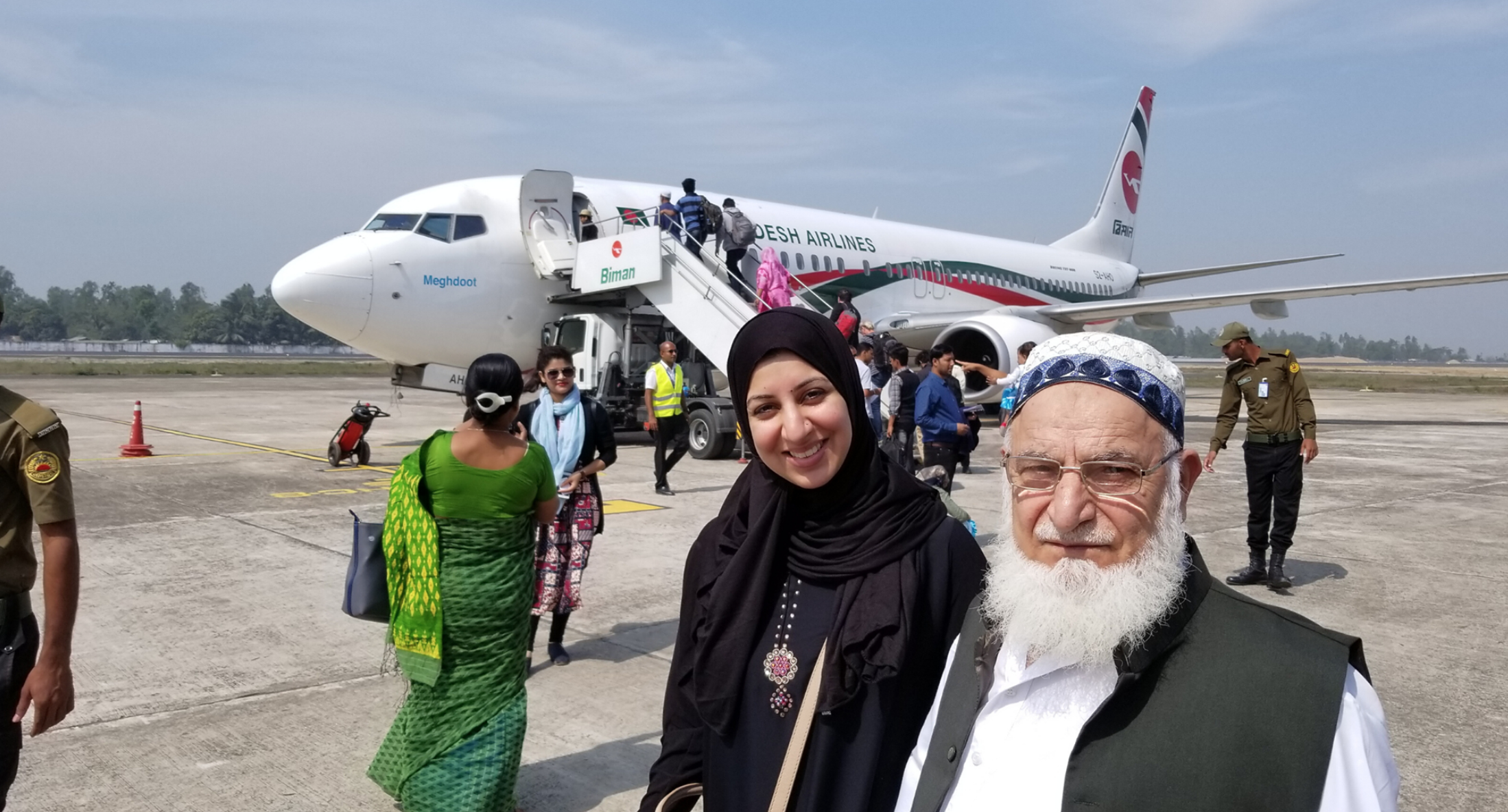
Butt was a man of faith. He put Islam before anything else. Back then, there was only one masjid in the neighborhood– Masjid Umar, now referred to as the Islamic Center of Brighton Beach. One day, Butt and his two friends decided to open another masjid called Masjid Mustafa (located on Ocean View Avenue). His official role at the masjid was Treasurer. According to his daughter, he didn’t want the spotlight. He wanted to work behind the scenes.
“Since the day he got to this country, he didn’t want to lose grasp of who he was and where he came from,” Samia Butt told us. “That was one thing that kept us to our roots– Islam. Because it tells you how you’re supposed to be, what you’re supposed to eat, how you’re supposed to walk, rules, restrictions, and modesty.”
She remembers questioning what he would say when she was younger. Why does my shirt need to be longer? As she grew up, she realized that her father was doing it all out of love and care.
“It was about teaching us right from wrong. I realized it after why he would send us to the masjid. Why he would make sure we went to our Sunday classes. Why we had to read the Quran. Why we had to pray five times a day,” she said. “It was a lifestyle he was teaching us and I am grateful. If it wasn’t for my parents, if it wasn’t for him, we wouldn’t have been molded this way. Now, because of him, I make sure everything I do is according to faith. It helps ground me.”
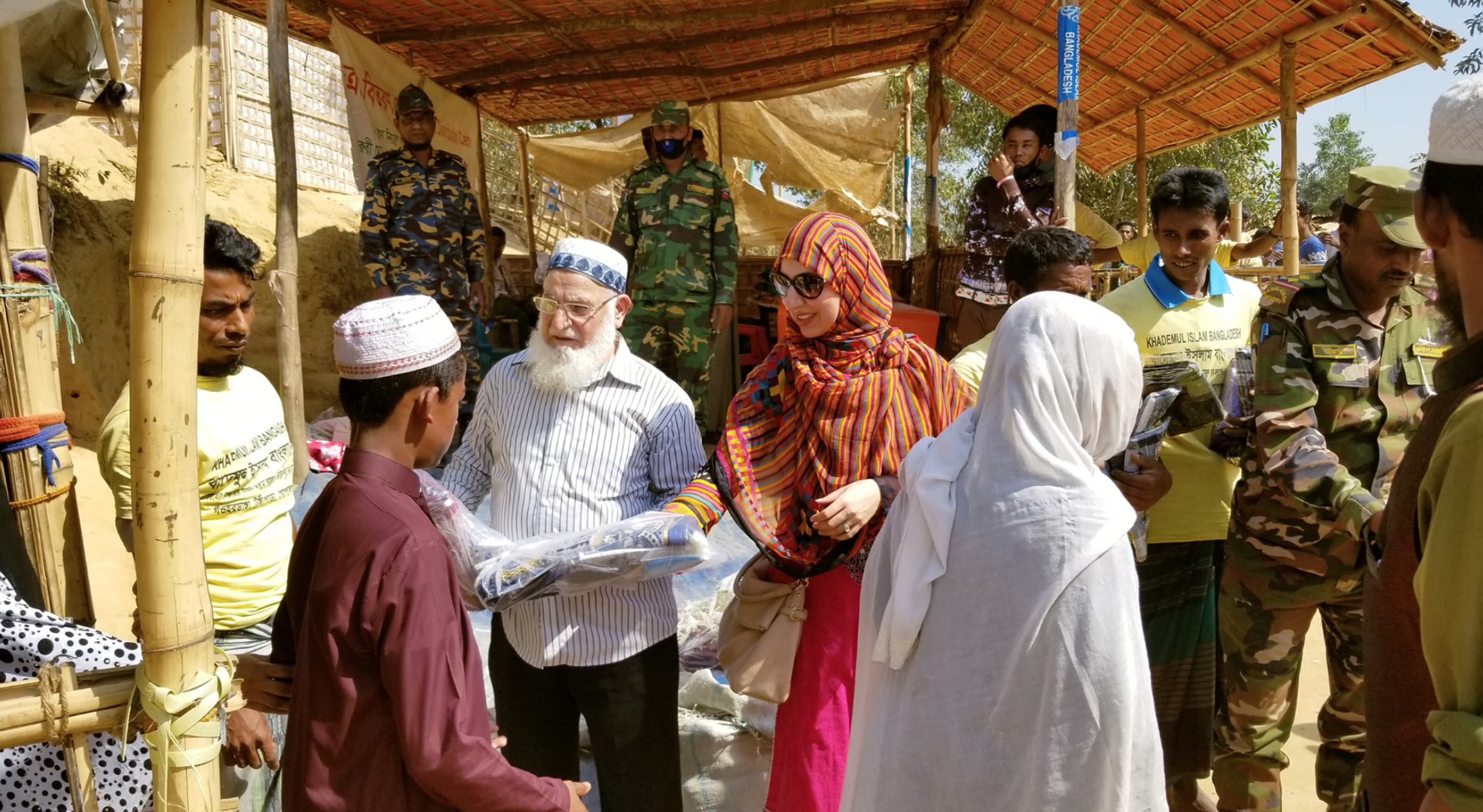
Butt was always working on projects. His family often knew about the big ones, but they didn’t know about others until after he died. Relatives and friends called Butt after her dad passed away telling her he had given them money for their rent, or he put their children through school. He was a man that was always giving.
“During Hurricane Sandy and other hard times, he was always there to help out in the community. If anyone needed some cash, he would lend it to them without asking twice,” Samia Butt said. “Months later he told us there was a woman who came to the masjid and needed money. So, he’d give her monthly cash for groceries. One day, she came in and said she didn’t need the money anymore. She said ‘You helped me stand on my feet and now I am good.’ He would never tell us this stuff.”
A few months before he died, Butt told her he wanted to visit the Al-Aqsa Masjid in Jerusalem. For Muslims, it is the third holiest site in Islam. Samia told Adnan what he had said and soon enough, they had booked a flight. It would be just Butt and his son-in-law. And it would be a trip Adnan would remember forever.
“My father-in-law wanted to do something for the people living in Jerusalem. He told me he wanted to help because he heard so many young children were without parents there,” Adnan said. And so they went. One night they were at the market and came across the imam who led the Fajr prayer.
“When he saw him, he told him, ‘Can you make a prayer for my daughter?'” Samia Butt recalled her dad telling her. He wanted her to have children. “He stopped this man in the middle of the night in a market where everything is closed and told him to pray for me. Only a father would do that. No one else.”
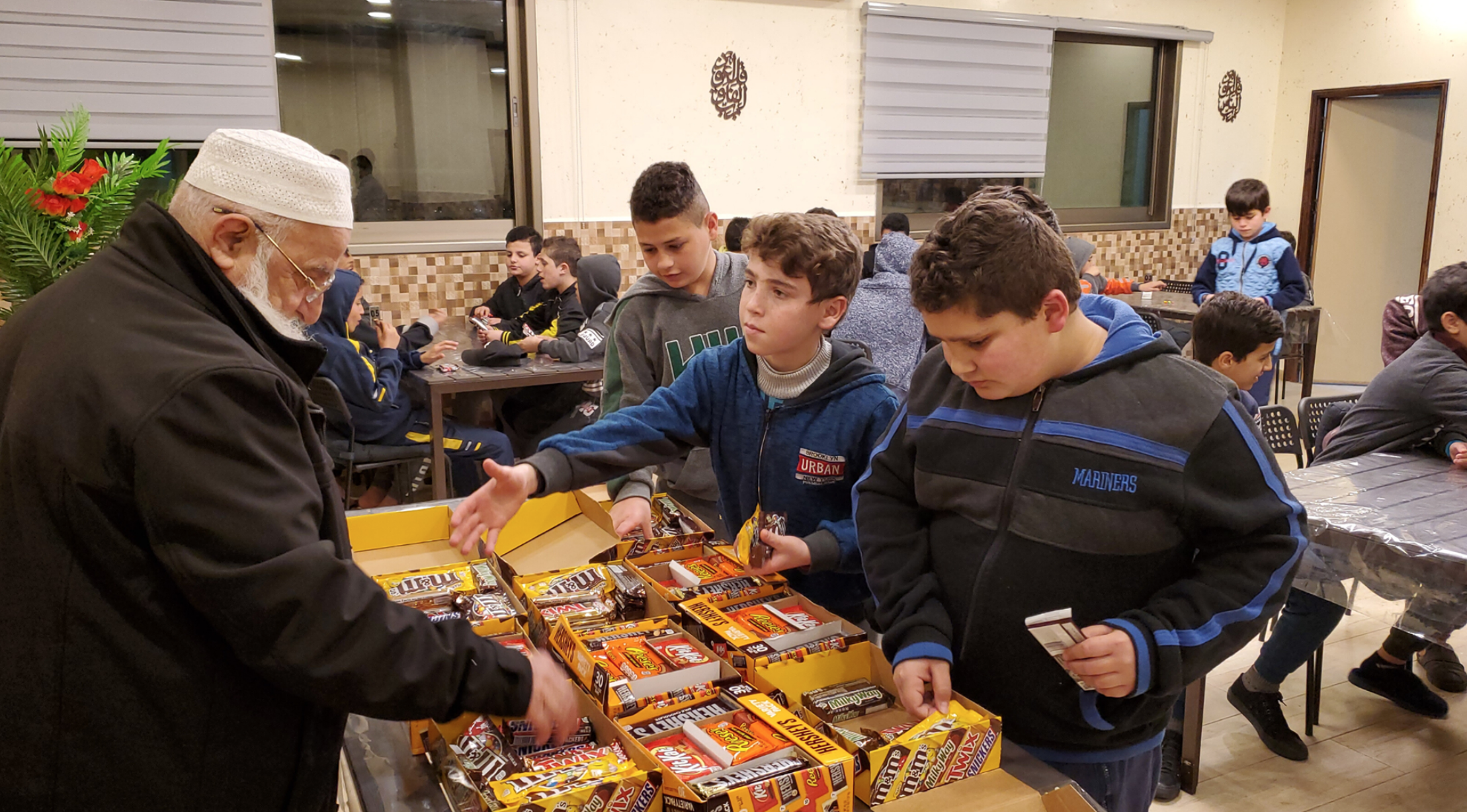
In February of 2018, Butt wanted to visit the Rohingya refugees in Bangladesh. He wanted to go to the camps personally and help out the people. So, with the help of his masjid, they raised over $20,000. And off they went.
“He told me, ‘Beta Adnan, I want to go and help these Muslims – find a way and let’s go together,'” Adnan recalled. “We used Airline miles for our flights to and from Bangladesh – costing us no overhead cost. He wanted to make sure 100% of the funds were used towards helping these Muslims suffering from mass execution.”
Like his wife, Adnan was close to his father-in-law. He would often visit his in-laws at least two times per week. He would go with Butt to the masjid where he would notice people came to him for advice when dealing with disputes and getting their daughters married.
“My father-in-law was a man that enforced others to be kind to others and fair in dealings with others,” Adnan said. “I miss him mostly for the duaa I would always get from him, which I knew came from the bottom of his heart.”
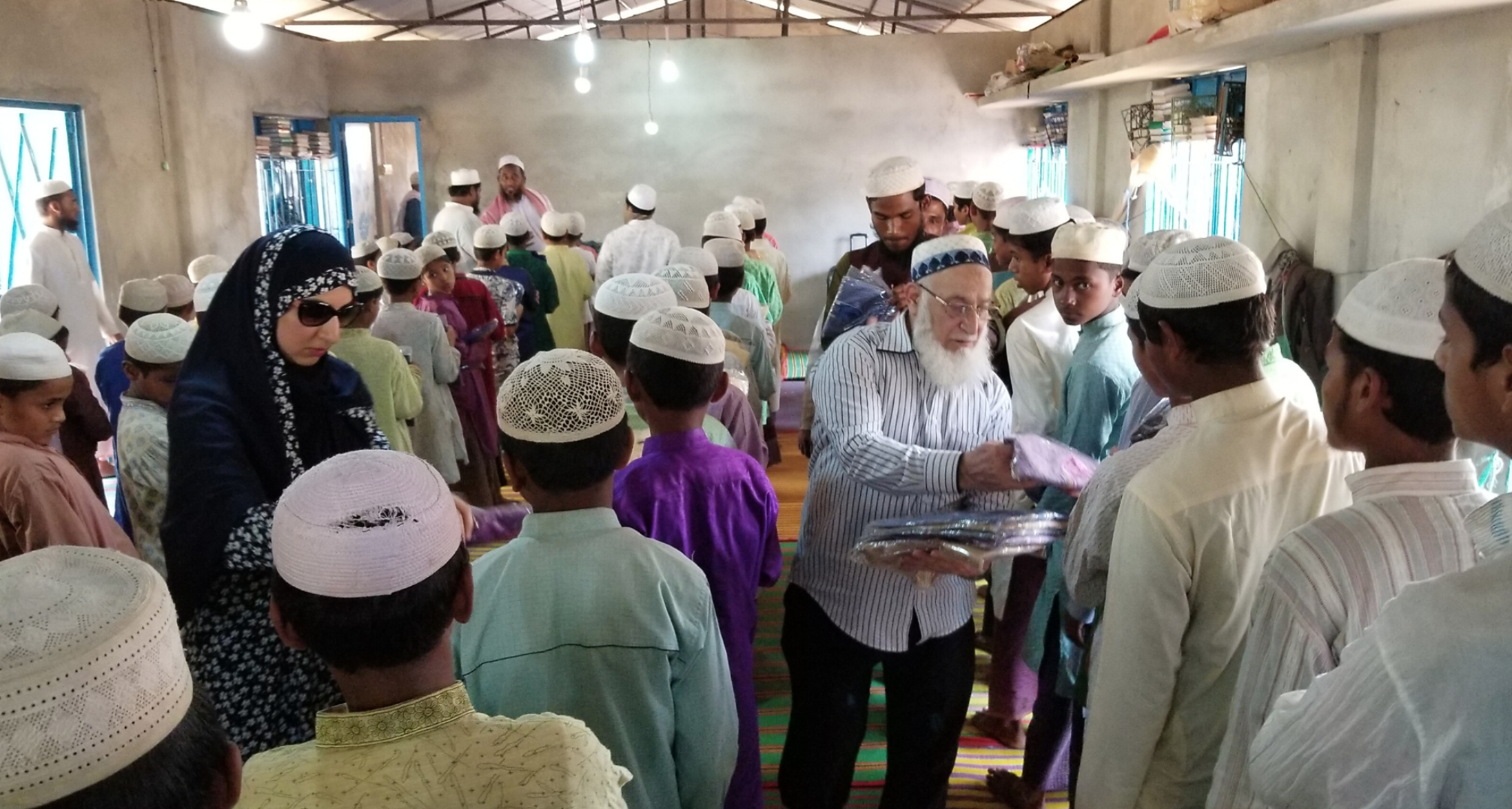
Then the pandemic hit.
At the end of March 2020, Butt got really sick. He had a fever and was coughing a lot. The doctor prescribed some medicine, but it didn’t help. He started telling his wife he wanted to see his grandkids. His wife said no; he was too sick and he’d get them sick. He didn’t want to hear it. He called his daughter-in-law himself and told her to bring the kids over. His daughter remembers him hugging the children, telling them he’s proud of them, and loves them dearly. Two days later, his health deteriorated. He was wheezing a lot and finding it hard to breathe. His son, an EMT, took him to Maimonides Hospital where he was put on a ventilator. He had the coronavirus.
His health never got better. The medication began affecting his kidneys and doctors had to perform dialysis. On April 9, his family got a call from the hospital saying they should come to see him. His daughter said they weren’t really expecting anything bad. At the hospital, Samia’s older brother went to see him first. Then, her other brother went. And then it was her turn.
She paused to take a breath before speaking, but remembering her father, the tears came out anyway.
“He was in the corner of the room and he was at the far end. I had to walk past all of the COVID patients and I can see him from the corner of my eye and I didn’t want to look,” she said softly. She remembers her dad’s feet, arms and shoulders weren’t covered. So, she grabbed the blanket and covered them.
“I know for him, that’s what he would have wanted. That modesty. And I wanted to give him at least that much respect,” she said. “He was laying on his back facing the left side. The nurse walked me over to the other side because I couldn’t see him like that. I held the bed rail and broke down. I said my last words. I tried to hug him and I tried to kiss him but I couldn’t. The mask was there.”

As she was walking down, it was her sister’s turn to see her dad, so her sister was on her way to the room. When her sister came back out later, she asked, “Hey, was Dad on a machine?” Everyone looked at one another confused. Of course, he was on the machine. He was on the ventilator.
“No, he was off the machine when I went,” her sister said. “I think dad died because they took off the machine and told me ‘I’m sorry for your loss.'”
Now, everyone was even more confused, especially Samia, who had seen her dad just seconds before. Soon enough, the doctors came in and told them he had died.
“It dawns my mind that it happened as soon as soon as I left, while my sister was going up, while I’m coming down,” she cried. She remembers going down to the car afterward. She remembers sitting silently in the car with her brothers, feeling numb. Grieving the first man she ever loved.
The world feels empty without him. Even now, when she goes to visit her home in Brighton Beach, she thinks her dad is at the masjid and will be back home soon. She thinks he’s praying salah. It’s even harder for her mom. All of Butt’s children are married and live in their own houses. He lived in his home with his wife. The first day they went back, Samia’s mother couldn’t even open the door. His shoes were there. His clothes were still hung up. His glasses were sitting on the table. His topi was at his bedside.
“He’s my father,” Samia said. “He’s everything for me.”
Humayun Butt would always help everyone. His family wants to continue his legacy. A page has been set up to donate toward helping widows and refugees in his name. If you can, you can donate here.



